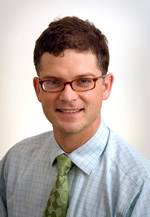JAMA article advocates for federal leadership in combatting opioid overdoses

In the November 14 issue of the Journal of the American Medical Association (JAMA), medical clinicians and researchers advocate for new techniques to fight drug overdoses. Alexander Walley, MD, MSc, assistant professor at Boston University School of Medicine, co-authored the article with Leo Beletsky, JD, MPH, assistant professor at Northeastern University School of Law and Bouvé College of Health Sciences, who served as the paper’s lead author, and Josiah Rich, MD, MPH, professor at Brown Medical School.
The article specifically focuses on the national problem of fatal overdoses from opioid drugs, which include the street drug heroin and prescription drugs such as oxycodone. According to the article, opioid overdose kills 16,000 Americans annually and affects all sectors of society. The article calls for federal, state and local authorities to act in concordance to improve awareness about drug overdose and increase availability of the life saving drug, naloxone.
Naloxone is a critical medication that acts to quickly to reverse the effects opioid overdose. However, the authors describe several barriers impeding more effective use of naloxone. For example, although naloxone is generic, there is a critical supply shortage, making the drug expensive. Furthermore, many doctors are fearful of increased liability if they prescribe naloxone and worry about facilitating risky behavior.
In order to increase supply, the authors call for the federal government to streamline naloxone importation. They ask for the U.S. Food and Drug Administration to facilitate the clearance of easier to administer forms of the drug, such as a nasal spray or an “epi-pen” like auto injector instead of the current method, which utilizes unwieldy needles. They also call for clinicians to be educated about the benefits of naloxone for their patients. Additionally, the authors call on state and local authorities to increase awareness and offer patient education about drug overdose and naloxone therapy.
“Community-based overdose prevention programs that include overdose education and naloxone access could help avert unnecessary, preventable death,” said Walley, who also is a physician at Boston Medical Center.
-Written by David Mosbach, MD